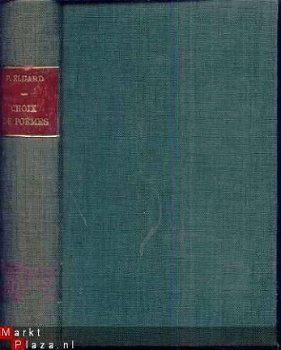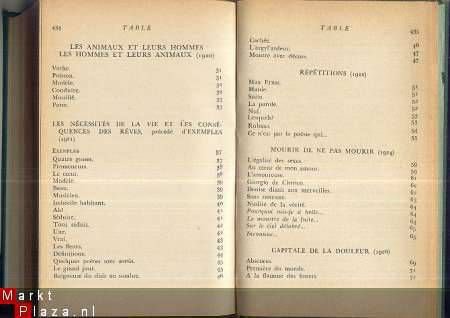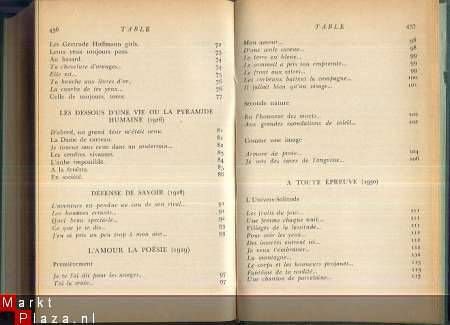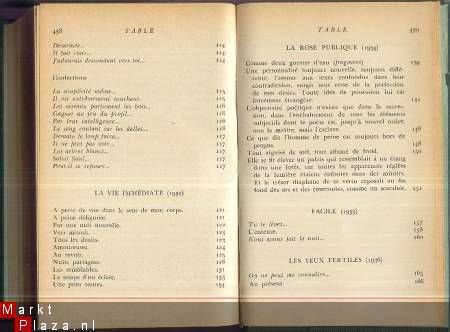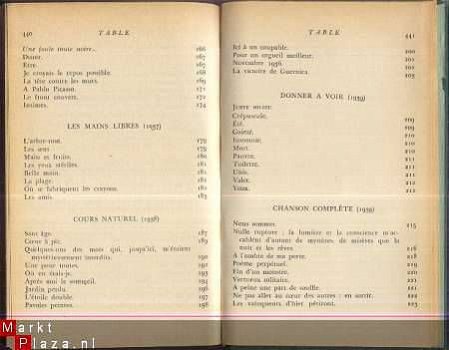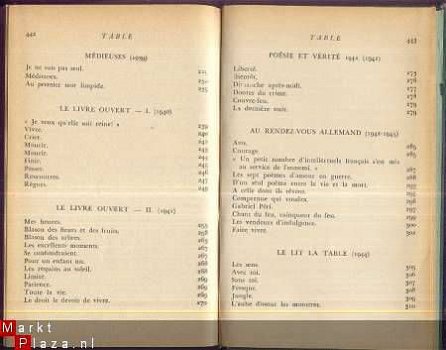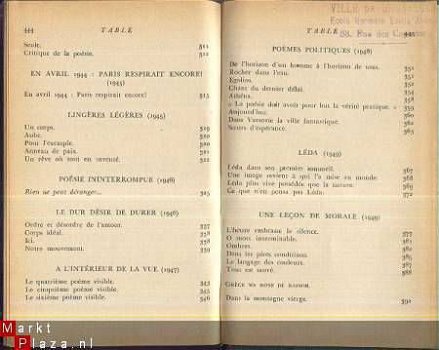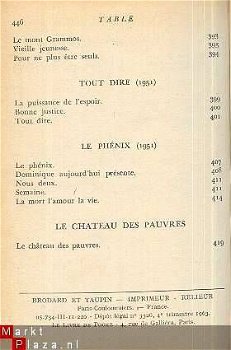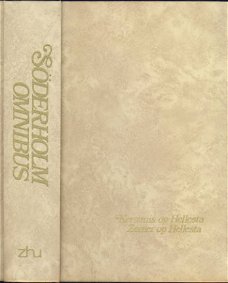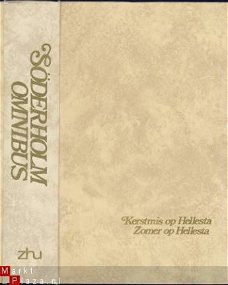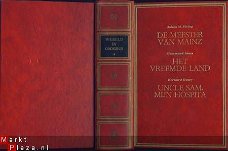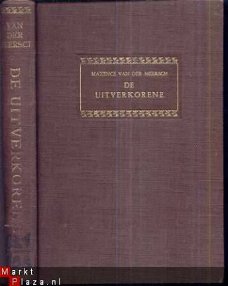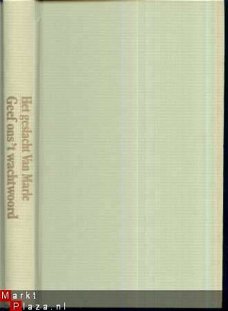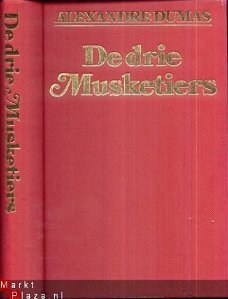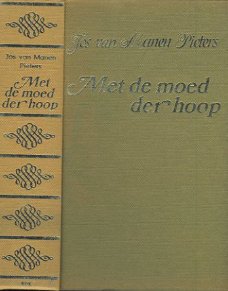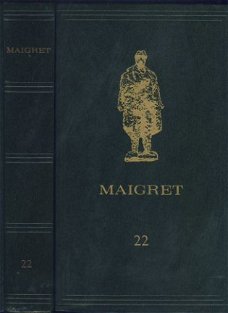
PAUL ELUARD**CHOIX DE POEMES**HARDCOVER+RELIURE**
Kenmerken
- Conditie
- Gebruikt
- Levering
- Niet van toepassing
Omschrijving
PAUL ELUARD
**CHOIX DE POEMES**
!!!!!!HARDCOVER+RELIURE SOLIDE.!!!!!!
EDITEUR LE LIVRE DE POCHE
FORMAT 164 X 105 X 33 + 446 PGS + 360 GRS.
EXPEDITION EN BELGIQUE 5,50 EURO.
Paul Éluard (1895-1952) - pseudonym of Eugène Grindel
French poet, a founder of Surrealism with Louis Aragon and André Breton among others, one of the important lyrical poets of the 20th century. Éluard rejected later Surrealism and joined the French Communist Party. Many of his works reflect the major events of the century, such as the World Wars, the Resistance against the Nazis, and the political and social ideals of the 20th-century.
I was born to know you
To give you your name
Freedom.
(from Poèsie et Vérité, 1942)
Paul Éluard came from a lower-middle-class background. He was born Eugène Émile Paul Grindel in Saint-Denis, Paris, the son of a bookkeeper, whose wife helped out with the household bills by dressmaking. Éluard became interested in poetry in his youth in Clavadel, a Swiss sanatorium, where he was sent for treatment of tuberculosis. When he returned to France, he joined the army and was badly injured by gas. His first noteworthy volume of poetry was LE DEVOIR EL L'INQUIÉTUDE (1917). During a leave from the service in 1917, he married a Russian woman, Helena Diakonova, known as Gala, whom he had met in Clavadel. Gala inspired several of Éluard's poems published in CAPITALE DE LA DOULEUR (1926), which established his reputation as a poet.
Like André Breton, Aragon, Péret, Soupault and other intellectuals, Éluard emerged from the war disgusted with commonly accepted values of the bourgeois society. He was briefly involved with the Dada movement, which declined in the 1920s as many of its proponents joined the Surrealists. Éluard's early statement in verse of surrealist theories was LES NÉCESSITÉS DE LA VIE ET LA CONSÉQUENCE DES RÊVES (1921). With the painter Max Ernst, who had moved to Paris in 1922, Éluard worked on a cycle entitled Les Malheurs des Immortels, a series of pictures made of scraps of illustrations cut out from old books.
In 1924 Éluard disappeared mysteriously. Rumours of his death were widely circulated and finally accepted as true. After seven months he appeared and explained that he had been on a journey from Marseilles to Tahiti, Indonesia, and Ceylon. The journey was later connected with the loss of his wife Gala to the surrealist artist Salvador Dali, although their affair started much later. Legally Éluard and Gala were divorced in 1932.
L'amoureuse
Elle est debour sur mes paupières
Et ses cheveux sont dans les miens,
Elle a la forme de mes mains,
Elle a la couleur de mes yeux,
Elle s'engloutit dan mon ombre
Comme une pierre sur le ciel.
Elle a toujours les yeux ouverts
Et ne me laisse pas dormir.
Ses rêves en pleine lumière
Font s'évaporer les soleils,
Me font rire, pleurer et rire,
Parler sans avoir rien à dire
(tr. by Samuel Beckett)
She is standing on my lids
And her hair is in my hair
She has the colour of my eye
She has the body of my hand
In my shade she is engulfed
As a stone against the sky
She will never close her eyes
And she does not let me sleep
And her dreams in the bright day
Make the suns evaporate
And me laugh cry and laugh
Speak when I have nothing to say
Freud's theory of the unconscious influenced deeply avant-garde writers; especially the technique of automatic writing was experimented as a method to liberate subconscious from the straitjacket of reason. However, Éluard practiced automatic writing very litte, but it was one of Breton's favorite subjects. From 1924 to 1938 Éluard was a central member of the surrealist group. In 1933 he was expelled from the Communist Party partly due to an article published in Le Surréalisme au service de la révolution, in which Ferdinand Alquié denounced "the wind of cretinization blowing from the U S S R ".
Éluard cooperated in 1930 with Breton in L'IMMACULATE CONCEPTION, a series of poems in prose, in which they entered into communication with the vegetative life of the foetus and simulated demented states. "Of all the ways the sunflower has of loving the light, regret is the loveliest on the sundial. Crossbones, crosswords, volumes and volumes of ignorance and knowledge. The doe, between bounds, likes to look at me. I keep her company in the glade. I fall slowly from the heights, as yet I weigh only what minus a hundred thousand yards will weigh..."
In the late 1930s Éluard abandoned Surrealistic experimentations as a result of his concern over the Spanish Civil War and political problems. He married in 1934 Maria Benz, known as Nusch; earlier she had been a hypnotist's stooge in a circus and a small-time actress and model. Nusch did not only inspire some of Éluard's most tender love poems, but she also inspired Picasso's portraits, and for a time, she was the artist's mistress.
During WW II, Éluard served in the French army and in the Communist Resistance. To avoid the Gestapo Éluard and Nusch constantly changed addresses. His poems Éluard published under such pseudonyms as Jean du Hault and Maurice Hervent. Éluard's most famous works from these years, 'Liberté' and 'Rendez-vous Allemand', were spread throughout France. Nusch died unexpectedly in 1946, she suffered a stroke and collapsed in the street. Éluard's third wife was Dominique Laure, to whom he dedicated the collection LE PHÉNIX (1951). Picasso, who once had potrayed Éluard as a transvestite, said that he is not going to honor him again by going to bed with his wife.
After the war Éluard was active in the international communist movement in the cultural field. He traveled in Britain, Belgium, Czechoslovakia, Mexico, and Russia, but not the United States, because he was refused a visa as a Communist. Éluard's idealism and inability to see the reality of the Soviet Union, led the poet to admire Stalin. He saw poetry as an action capable of arousing awareness in his readers, and identified with the leftist struggle for political, social and sexual liberation. "So much fonfusion to stay so pure," wrote Salvador Dali on Éluard in his diary (Diary of Genius, 1966).
Éluard published over seventy books, including poetry, literary and political works, and poetic texts dedicated to such painters as Max Ernst and Pablo Picasso. Painting, like poetry, was for Éluard destined to disseminate truth belonging to both the real and the imaginary. The mission of poetry was to renew language in order to effect radical changes in all areas of human life, "poetry is a perpetual struggle, life's very principle, the queen of unrest." ('Poetry's Evidence', This Quarter; Surrealist Number, September 1932.) In Éluard's love lyrics woman performs as a liberating force. Love, to Éluard, was a kind of revolution of the spirit. In 'L'amoureuse' Éluard exemplified the effects of love, which unites one soul to another. Samuel Beckett, who translated the work into English, did not actually feel close to the Surrealists, but Éluard and Breton were among his friends.
Among Éluard's best-known later works are POÉSIE ININTERROMPUE (1946) and POÉMES POLITIQUES (1948). Éluard died of a heart condition on November 18, 1952 in Charenton-le-Pont. At his funeral, organized by the Party, Picasso was seated next to Dominique. "In fact," she said later, "it was Éluard who was a friend to Picasso, and the other way around only to the extent that Picasso was capable of friendship."
For further reading: World Authors 1900-1950, vol. 2, ed. by Martin Seymour-Smith and Andrew C. Kimmens (1996); Picasso: Creator and Destroyer by Arianna Stassinopoulos Huffington (1988); French Literature by W. Fowlie (1980); Sensibility and Creation, ed. by R. Cardinal (1977); Paul Éluard by Robert Nugent (1974); Poésie ininterrompue et la poétique de Paul Éluard by R. Vernier (1971); Meetings with Poets by J. Lindsey (1968); Paul Éluard par lui-même by R. Jean (1968); Études sur le temps humain by G. Poulet (1964) - See also Odysseus Elytis - Suomennoksia antologioissa Tuhat laulujen vuotta (1957) ja Tulisen järjen aika (1962).
SELECTED WORKS:
PREMIERS POÈMES, 1913
DIALOGUES DES INUTILES, 1914
LE DEVOIR, 1916
LE DEVOIR ET L'INQUIÉTUDE, 1917
POÈMES POUR LA PAIX, 1919
LES ANIMAUX ET LEURS HOMMES, LES HOMMES ET LEURS ANIMAUX, 1920
LES NÉCESSITÉS DE LA VIE ET LA CONSÉQUENCE DES RÊVES, 1921
RÉPÉTITIONS, 1922
MOURIR DE NE PAS MOURIR, 1924
152 PROVERBES MIS AU GOÛT DU JOUR, 1925
AU DÉFAUT DU SILENCE, 1925
LES DESSOUS D'UNE VIE; OU, LA PYRAMIDE HUMAINE, 1926
CAPITALE DE LA DOULEUR, 1926 - Capital of Pain (trans. by Richard M. Weisman) / Capital of Pain (trans. by Mary Ann Caws, Patricia Terry, Nancy Kline)
DÉFENSE DE SAVOIR, 1928
L'AMOUR, LA POÉSIE, 1929
NOTES SUR LA POÉSIE, 1929 (with André Breton)
A TOUTE ÉPREUVE, 1930
L'IMMACULATE CONCEPTION, 1930 (with André Breton)
DORS, 1931
LA VÉRITÉ IMMÉDIATE, 1932
CERTIFICAT, 1932
COMME DEUX GOUTTES D'EAU, 1933
LA ROSE PUBLIQUE, 1934 - The Public Rose
NUITS PARTAGÉES, 1935
LES YEUX FERTILES, 1936 - The Fertile Eyes
Thorns of Thunder, 1936 (ed. and transl. by G. Reavey)
LE FRONT COUVERT, 1936
NOTES SUR LA POÉSIE, 1936 (with André Breton)
LA BARRE D'APPUI, 1936
L'EVIDENCE POÉTIQUE, 1937
AVENIR DE LA POÉSIE, 1937
PREMIÉRES VUES ANCIENNES, 1937
LES MAINS LIBRES, 1937
APPLIQUÉE, 1937
QUELQUES-UNS DES MOTS QUI JUSQU'ICI M'ÉTAIENT MYSTÉRIEUSEMENT INTERDITS, 1937
DICTIONNAIRE ABRÉGÉ DU SURRÉALISME, 1938 (with André Breton)
SOLIDARITÉ, 1938
FACILE PROIE, 1938
ODE À SALVADOR DALI, 1938
CHANSON COMPLÈTE, 1939
MÉDIEUSES, 1939
CHARLES BAUDELAIRE, 1939
JEUX VAGUES LA POUPÉE, 1939
LE LIVRE OUVERT, 1940
MORALITÉ DU SOMMEIL, 1941
CHOIX DE POÉMES, 1941
SUR LES PENTES INFÉRIEURES, 1941
POÉSIE ET VÉRITÉ, 1942 - Poetry and Truth
LE LIVRE OUVERT II, 1942
LA DERNIÈRE NUIT, 1942
POÉSIE INVOLONTAIRE ET POÉSIE INTENTIONNELLE, 1942
LES SEPT POÉMES D'AMOUR EN GUERRE, 1943
DIGNES DE VIVRE, 1944
AU RENDEZ-VOUS ALLEMAND, 1944
POUR VIVRE ICI, 1944
LE LIT LA TABLE, 1944
LES ARMES DE LA DOULEUR, 1944
QUELQUES MOTS RASSEMBLÉS POUR MONSIEUR DUBUFFET, 1944
LIBERTÉ, 1944
À PABLO PICASSO, 1944 - Pablo Picasso (trans. by Joseph T. Shipley)
EN AVRIL 1944: PARIS RESPIRAIT ENCORE!, 1945
DOUBLES D'OMBRE, 1945
LINGÈRES LÉGÈRES, 1945
UNE LONGUE RÉFLEXION AMOUREUSE, 1945
LE VAEU, 1945
POÉSIE ININTERROMPUE, 1946 - Uninterrupted Poetry
SOUVENIR DE LA MAISON DES FOUS, 1946
LE DUR DÉSIR DE DURER, 1946 (illustrated by Marc Chagall)
FIGURE HUMAINE, 1946
OBJET DES MOTS ET DES IMAGES, 1947
ELLE SE FIT ÉLEVER UN PALAIS, 1947
LE TEMPS DÉBORDE, 1947
MARC CHAGALL, 1947
CORPS MÉMORABLE, 1947
DEUX POÈTES D'AUJOURD HUI, 1947
LE MEILLEUR CHOIX DE POÈMES EST CELUI QUE L'ON FAIT POUR SOI, 1947
POÉMES POLITIQUES, 1948
CORPS MÉMORABLE, 1948
À L'INTÉRIEUR DE LA VUE, 1948
GABRIEL PÉRI, 1948
PREMIERS POÈMES, 1948
LE BESTIAIRE, 1949
LA SAISON DES AMOURS, 1949
JE T'AIME, ELLE M'AIMAIT, 1949
PERSPECTIVES, 1949
LÉDA, 1949
GRÈCE MA ROSE RAISON, 1949
UNE LEÇON DE MORALE, 1949
HOMMAGE AUX MARTYRS ET AUX COMBATTANTS DU GHETTO DE VARSOVIE, 1950
POUVOIR TOUT DIRE , 1951 - Say Everything
LE PHÉNIX, 1951
UN POÈME, 1951
PREMIÈRE ANTHOLOGIE VIVANTE DE LA POÉSIE DU PASSÉ, 1951
LA JARRE PEUT-ELLE ÊTRE PLUS BELLE QUE L'EAU?, 1951
LE VISAGE DE LA PAIX, 1951
Selected Writings, 1951 (trans. by Lloyd Alexander)
GRAIN-D'AILE, 1951
PICASSO, DESSINS, 1952
MARINES, 1952
LES SENTIERS WET LES ROUTES DE LA POÉSIE, 1952
POÈMES POUR TOUS, 1952
LETTRES DE JEUNESSE, 1962
ŒUVRES COMPLÈTES, 1968 (2 vols.)
LE POÈTE ET SON OMBRE, 1963
DERNIERS POÈMES D'AMOUR DE PAUL ELUARD, 1980 - Last Love Poems of Paul Éluard (trans. by Marilyn Kallet)
Uninterrupted Poetry: Selected Writings, 1975 (trans. by Lloyd Alexander; introductory notes by Aragon, Louis Parrot, and Claude Roy)
LETTRES À GALA, 1924-1948, 1984 - Letters to Gala (trans. by Jesse Browner)
Selected Poems, 1987 (trans. by Gilbert Bowen)
Shadows and Sun: Selected Writings of 1913-1952, 1995
Unbroken Poetry II / Poesie ininterrompue II, 1996 (trans. by Gilbert Bowen)
